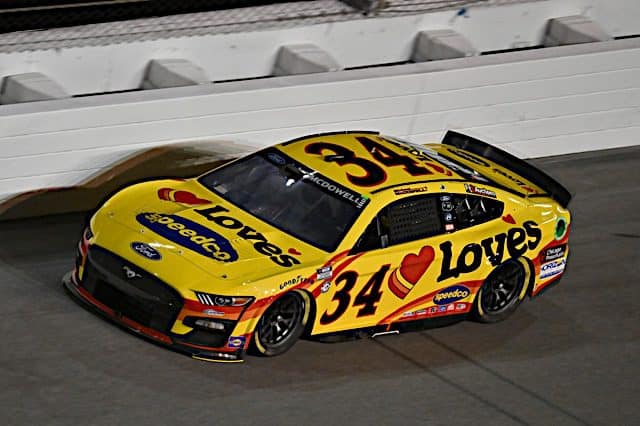NASCAR Cup Series race teams never stand still for very long. Last season brought a flurry of changes to the Cup garage with the introduction of the Next Gen car. Since then, nearly every organization on the grid has made a change to its driver lineup or management personnel.
Some teams have made big free agent acquisitions or taken the opportunity to elevate prospects to NASCAR’s highest level. Others have brought on new partners and investors, among them former drivers, athletes from other sports or other celebrities from the entertainment industry.
As negotiations for the next TV deal loom over the sport, the teams have also been testing their collective power to negotiate with NASCAR for a bigger piece of the pie.
If any Cup team seems content on sticking with business as usual, it is Front Row Motorsports.
Founded near the end of NASCAR’s boom years in the mid-2000s, FRM, led by restaurant magnate Bob Jenkins, initially struggled just to get its cars in the field. Those seasons of toil paid off with the team’s first win by David Ragan at Talladega Superspeedway in 2013. Ragan and teammate David Gilliland bested the field by drafting their way to a one-two finish on the final lap.
In the 10 years since Ragan’s victory, FRM’s identity as the scrappy underdogs of the Cup Series has changed little. The team has earned two more wins: one by Chris Buescher at Pocono Raceway in 2016 and the other via Michael McDowell’s triumph in the 2021 Daytona 500.
McDowell has been with the team since 2018, piloting the No. 34 car full time. Ragan left FRM very early in the 2015 season, only to come back in 2017 and race for a few more years. Since Ragan stepped away from full-time competition, the No. 38 has had a revolving door of young racers, usually ones who have brought sponsorship with them.
Compared to some of the other mid-pack teams, it feels like FRM’s growth has slowed in recent years. The organization has experimented with running more than two chartered cars as recently as 2019, though FRM has since sold its third charter. It could be argued that the charter system and cost saving measures of the Next Gen car have given FRM more stability than it has enjoyed in the past. But it would be harder to prove that the team has truly become more competitive than it was 10 years ago.
In the No. 34 team’s case, McDowell has put together his two best seasons in the last two years. Although he did not win in…
Click Here to Read the Full Original Article at …

